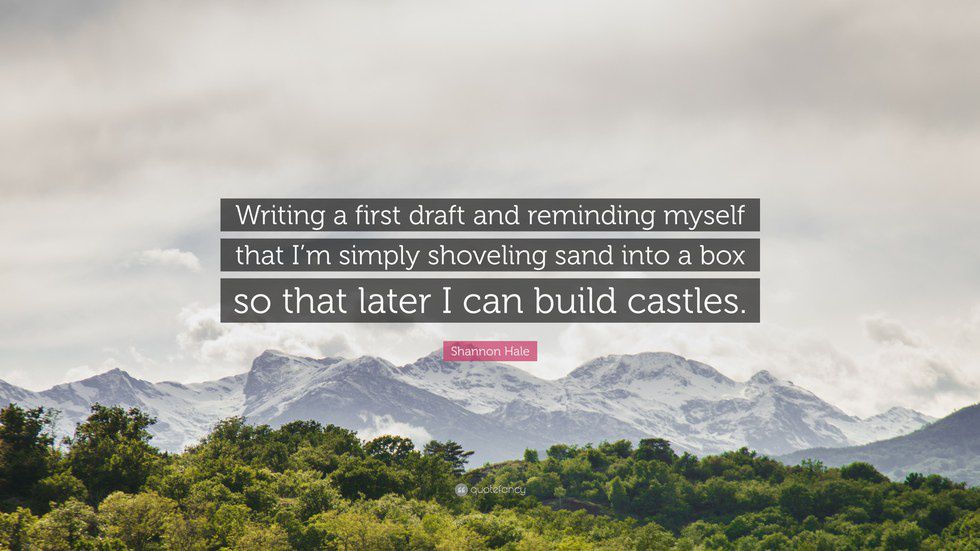This November, writers all over the world took on the crazy, near-impossible challenge that is NaNoWriMo. Short for National Novel Writing Month, the challenge is pretty self-explanatory: write an entire novel in a month.
Every November, writers around the world set out to write a minimum of 50,000 words in just 30 days with the hope of having a finished first draft by December 1st. However, since 50,000 words is only about 200 pages, most people still have a ways to go even if they win the challenge, but whether you end up with a complete draft or not, writing that many words in that little time is no simple feat.
Though it may sound crazy, NaNoWriMo is one of the most exciting times of the year for writers because it's a chance to really work on our writing skills, work on our writing routine (making time for 1,667 words every day is a challenge in itself), and have so much fun exploring our imagination. Some people are critical of the challenge, arguing that all it produces are bad, hastily finished novels, but that's not always the case. Most writers go into November knowing they won't come out with the next bestseller, or even something worth reading. For us, it's more about the process of writing and about building the confidence to keep working until we get there.
With those goals in mind, writing a novel can be really fun, but it also provides plenty of opportunities to rip one's hair out. There are so many strange things about the writing process that all writers experience and that most non-writers probably think make us a little crazy (and they're probably not wrong).
Here's what writing a novel is like:
Putting together a puzzle—except you made all the pieces from scratch, separately, and none of them fit together
You might get an idea for a scene several chapters ahead of where you are or for the end of the story or the middle—you get the point. But when you try to string them all together, it doesn't look like a clean puzzle so much as a pile of garbage.
Digging yourself into a hole, repeatedly, when you’re just trying to get from here to there
Looking like a murderer, an arsonist, or just a person with a really weird obsession with horses or medieval France—whatever portrait your Google search history paints of you
"It's for research, I promise."
But you actually are kind of a murderer, now that you think about those dead characters
Getting funny looks from anyone who looks at your iTunes library
"This is my writing music... I don't, like, listen to this on a regular basis."
Realizing you actually are a crazy person when you remember something you wrote as if it really happened
Or when you go to reference your characters and then realize no one else knows who you're talking about. I really thought I was the only person who did this until I heard other writers discussing it. It's probably not healthy, but it happens, and what can we do about it?
Typing terrible sentences you know you'll have to delete later, just to hit your word count goal
After all, a first draft isn't about getting it right so much as getting it written, right?Shoveling sand into a box so that later you can build castles
(Quote courtesy of author Shannon Hale). Doing something as daunting and time-consuming as writing a novel can be fun and a little strange, but it can also feel pretty pointless when you read back over it and it's filled with terrible sentences, a hundred plot holes, and too many disjointed scenes to count. But when you remember that this is just the beginning, and that with enough time and effort, your pile of mismatched puzzle pieces could eventually become a masterpiece, it feels worth it again."You fail only if you stop writing." - Ray Bradbury





















